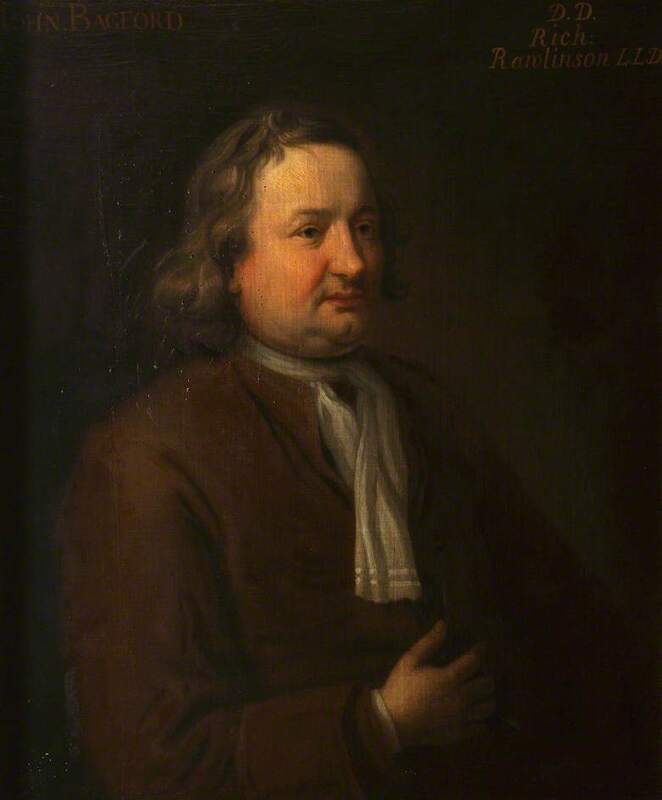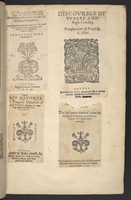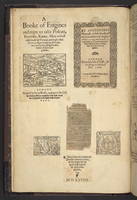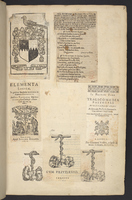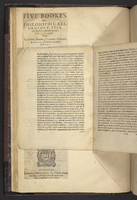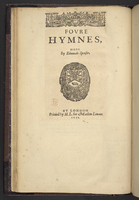This digital collection examines the work of John Bagford, a Londoner born in 1650.
Bagford began life as a shoemaker, but turned in the 1680s to dealing books and manuscripts secondhand, becoming what T. A. Birrell has described as a “library agent and a book runner.” He rescued scraps of waste and compiled them into large volumes to sell to wealthy patrons, found unusual books for clients, and saved fragments for his own large library. Bagford was indiscriminate in his collecting, gathering anything that might illuminate the past, which is in truth everything; and so his collections mushroomed with portfolios of old bindings and armorial stamps, printer’s marks and handwriting from around the world, entire scrapbooks largely devoted to samples of different kinds of paper: marbled, rice, white, colored, wallpaper, pasteboard. These albums were gathered in services of Bagford’s larger project: a complete history of the book, told through exemplary specimens of early text technologies.
One of John Bagford's albums now at the British Library is MS Harley 5927. It contains mostly English title pages and colophons from the sixteenth and seventeenth centuries. Here, you can browse a full facsimile of the album, as well as the individual fragments pasted into this album. Each fragment is linked to metadata identifying the title, author, stationers, date, and STC/Wing number if relevant. This metadata was produced by Penny Bee, Lauren Kim, and Whitney Trettien, building on Melvin Wolf's pioneering 1974 catalogue of Bagford's fragments. You can download this dataset on GitHub.
This digital collection is linked to a simple visualization examining the placement of these fragments. You can read more about Bagford's work in Cut/Copy/Paste.
